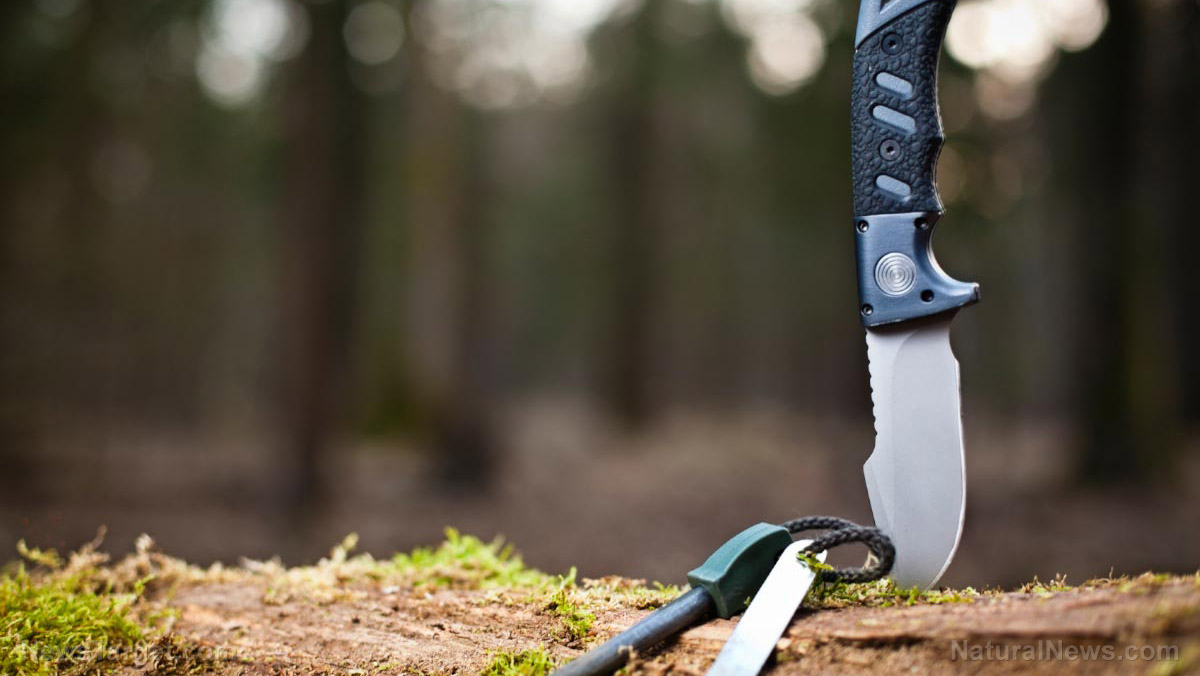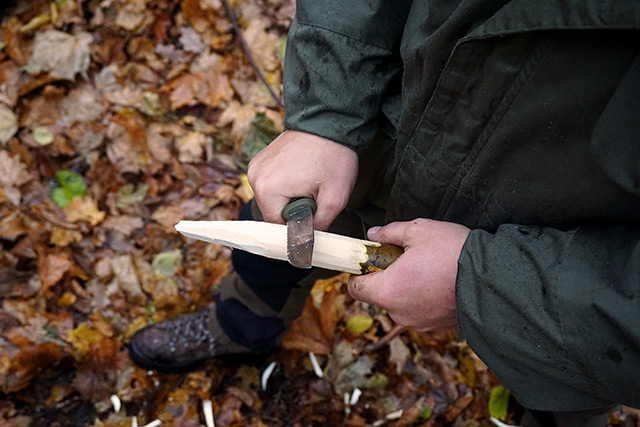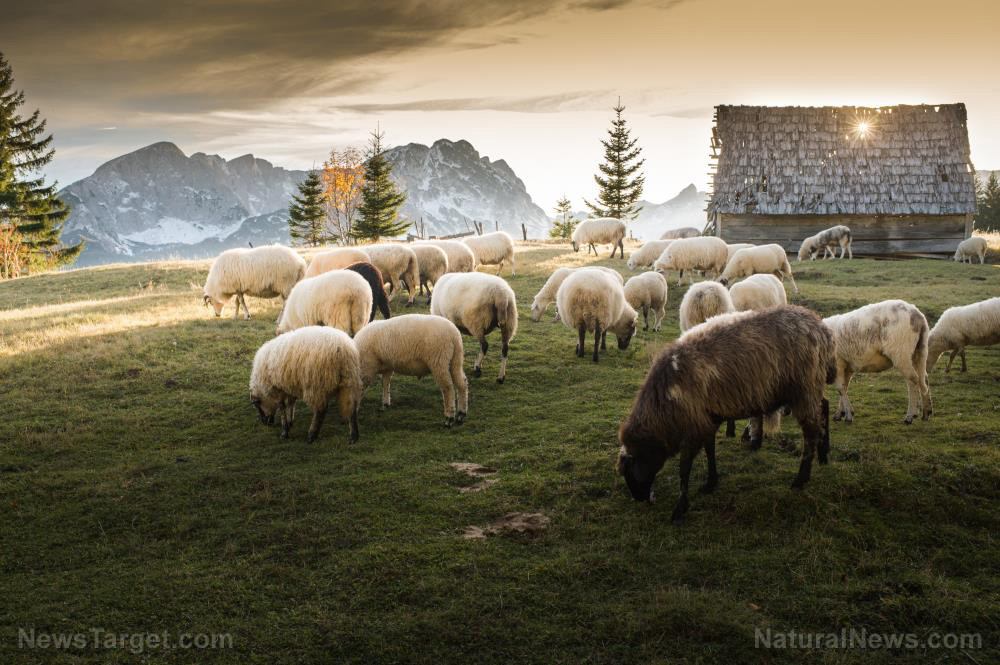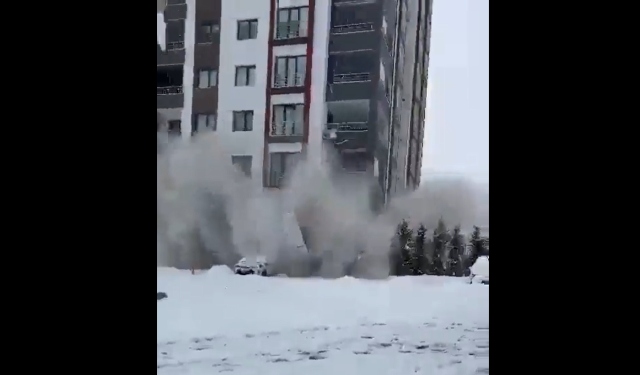Home defense tips: 7 Ways to protect your garden from looters and intruders
03/13/2023 / By Zoey Sky

Many preppers devote their resources, time and effort to their home gardens to provide food for their family or to sell fruits and vegetables at the farmers’ market.
Before SHTF, it would be wise to protect your garden from looters and intruders so your hard work doesn’t go to waste. If you’re not sure where to start, try setting up an alarm or getting a guard dog to protect your property. (h/t to AskAPrepper.com)
As a prepper, you must learn how to prep discreetly. This means not telling all your neighbors about your gear and survival stockpile.
You should also learn how to protect your property from trespassers and thieves before disaster strikes. To do this, you may need to combine several strategies since no one strategy will be 100 percent effective.
Here are some suggestions on how to protect your home garden from looters or trespassers.
Alarms
Depending on the size of your property and garden, there are various kinds of alarms that you can set up to keep away trespassers.
If you prefer a high-tech option, you can get an alarm with motion detectors. Alternatively, you can save money with an old-school alarm like a hidden trip wire tied to a can of pebbles.
You can also get something simple like a solar-charged light with a motion sensor. Whatever alarm you get, you need to make sure it is hidden so looters won’t be able to spot it and find a way to avoid it.
Compared to a method like an electric fence, an alarm will require considerably less power. But before SHTF, make sure that your off-grid power system can provide electricity for your alarm so your garden remains protected.
Deceptive planting
If you’re familiar with edible landscaping, deceptive planting works in a similar way.
Edible landscaping incorporates herbs, fruit-bearing plants, vegetables and edible flowers into your yard or garden. Start by choosing one or two plants that are both attractive and edible.
Like edible landscaping, deceptive planting is another creative way to sneak more edible plants into your landscaping without alerting looters when SHTF. The technique is also perfect if you want to maximize production in a limited space.
Unless your neighbors are gardeners themselves, they won’t always know what kind of plant they are looking at. And until those plants start bearing fruit, the average person can’t identify what they are.
However, the real giveaway is how you plant them. Rows of the same sorts of plants growing will often look like a vegetable garden.
But if you plant the same crops randomly, you can trick people into thinking that you only have a decorative garden. You can hide more obvious crops like celery and pumpkins.
Avoid using normal tomato cages to support tomato plants. Instead, use a homemade wood trellis to support the tomatoes because the cage may give the plant away.
This method may become harder as the plants begin to bear fruit and it’s easier to recognize a tomato or pepper. But if you plant flowers around those vegetables, the flowers will help hide your vegetables. (Related: Home gardening 101: Make the most out of your yard by planning an edible landscape.)
Electric fence
An electric fence is another popular method of protecting your home or garden from animals and people.
Since an electric fence is not normally considered in the same category as other more dangerous traps, there is little risk of having problems with the law. However, an electric fence will require electric power, which could be a problem if you are facing a post-SHTF scenario.
Before investing in an electric fence, look for the most energy-efficient electric fence and find out how much power it consumes. This ensures that if you need to increase the number of solar panels you have or add another battery to your shutdown system, you can do so before disaster strikes.
Guard dog
A well-trained and loyal guard dog can help protect your property and garden. Dogs are naturally territorial and will make a lot of noise if a stranger enters your yard.
It doesn’t really matter if your dog is big or strong enough to stop someone, as long as they can keep guard and let you know when they come. When the time comes, you can arm yourself if necessary.
A guard dog will also sleep lightly so if someone trespasses in your garden in the middle of the night, the dog will wake up and check things out. If your dog senses something suspicious, it will alert you.
If you plan on getting a dog, you also have to stock up on supplies for them like dog food and animal medicine.
Poisonous plants
If you are knowledgeable about plants, you can grow some poisonous plants around your garden.
To prevent severe harm to your family or animals on your property, avoid plants that could kill anyone who eats them. Instead, settle for plants that will be irritating rather than deadly.

It’s best to avoid poisonous plants if you have small children or curious pets on your homestead. If you want to grow poisonous plants, have a plan for working in your garden so you don’t accidentally come into contact with them.
Privacy fence
A privacy fence is an effective method of protecting your garden. There are a lot of options in fencing available, but if you want to set up a privacy fence you need one that can’t easily be seen through.
Get a privacy fence that is higher than most, like a seven- to eight-foot high fence since it’s too easy to see over a six-foot fence.
Remember that while a privacy fence is going to stop the casual viewer from looking into your garden, it won’t be enough to stop your neighbors, especially those with yards that share that fence with your own.
If this is the case, you might have to bribe some neighbors by offering to help them get their own gardens started.
If you think this is a possibility, prepare by keeping a good stock of seeds, fertilizer and gas for a rototiller on hand. With these extra supplies you can help nosy neighbors help them get rid of their grass and start planting.
In exchange for your help, you can negotiate to get a bit of what they grow come harvest time.
Traps
If you’re talking about home security, you might think about setting up traps like a punji stick trap.
A punji stick trap is a pit lined with sharpened sticks. This pit is then covered and camouflaged. During the Vietnam war, the spikes were sharpened bamboo, but in the U.S., you can use other materials in place of bamboo.
A punji stick trap could be large enough for a person to fall into or small enough for a looter’s foot or leg to fall into them. However, you might want to rethink this option because punji stick traps are actually illegal in all 50 states.
One major problem with traps is that they are indiscriminate. Once you set a trap, they can hurt anyone, like your own child or a wandering pet or goat.
If you insist on using traps, keep the legal risk in mind. To avoid accidents, don’t leave out traps in normal times.
Save them for the time when they might be needed, like after SHTF and you want to keep violent looters away from your home and garden.
Protect your garden from other looters like wild animals
Your garden may also be in danger from threats other than humans. If you live in a rural area, birds, insects and animals may target your crops.
Keep your home garden chemical- and pesticide-free by researching how to use predatory insects. Sometimes, these helpful insects may be more effective and they can help ensure the healthy growth of your organic fruits and vegetables.
If your garden is targeted by birds or wild animals, you can try building a “reverse greenhouse” around it. To make this structure, you will need poultry cloth for the walls and a shade cloth for the roof.
The shade cloth may be necessary if the area you live in is very hot. Adding the shade cloth to the reverse greenhouse for your garden can also help cool the temperature inside your garden by at least five to 10 degrees, depending on the time of day.
Together with the poultry fabric, the shade cloth can help prevent birds from flying into your garden.
And even if the poultry cloth isn’t strong enough to keep bigger animals like opossums and raccoons out of your home garden, it should fool them into thinking they can’t break through it.
Before SHTF, protect your home garden from looters and wild animals by getting a guard dog or setting an alarm.
Watch the video below to find out how to improve the yield in your home garden.
This video is from the Planet Zedta channel on Brighteon.com.
More related stories:
Home security tips: Top 12 defensive plants that can help deter trespassers.
Home defense plays important role in survival after SHTF.
Beehives, herbal gardens and more: 8 Useful prepper projects to try before SHTF.
Sources include:
Submit a correction >>
Tagged Under:
crops, defensive landscaping, emergency food, gardening tips, green living, Home Defense, home gardening, home security, homesteading, off grid, Plants, preparedness, prepper, prepping, self sufficiency, SHTF, survival, Survival Tips, sustainable living
This article may contain statements that reflect the opinion of the author
Get independent news alerts on natural cures, food lab tests, cannabis medicine, science, robotics, drones, privacy and more from NewsTarget.com
Get independent news alerts on natural cures, food lab tests, cannabis medicine, science, robotics, drones, privacy and more from NewsTarget.com
RECENT NEWS & ARTICLES
COPYRIGHT © 2017 · SURVIVAL NEWS





















